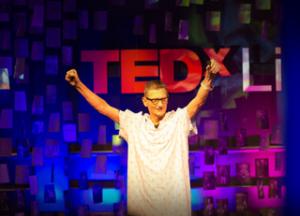American Healthcare System is Facing a Deadly Crisis Due to the Rapid Disappearance of Compassion in Medical Care
Declining absence of human connection between doctors and nurses and their patients is causing real, measurable harm.
At its core, the best and quickest healing requires more than just medical procedures. Studies have long shown that patients who feel seen, heard, and appreciated are more likely to most quickly recover, follow medical advice, and secure the best possible outcomes. Yet in today’s high-pressure healthcare environment, genuine human connection is being lost to bureaucracy, time constraints, and burnout. The result: a nationwide crisis of compassion.
“Compassion is not a luxury in medicine, it’s a necessity,” says healthcare crisis expert Lee Tomlinson also known as “Patient Lee”, “Without it, we see not only an increase in patient suffering and deaths, but also an alarming rise in physician and nurse burnout. Empathy fatigue is real and it is killing our caregivers from the inside out.”
A survey from the National Center for Health Workforce shows that more than 49% of healthcare workers report feelings of burnout, and 29% are leaving the field entirely. Pressure to deliver care quickly, coupled with systemic issues like understaffing and administrative overload, has created an environment where empathy is often pushed aside in favor of efficiency.
The consequences are dire:
• Patients feel dehumanized in a system that no longer sees them as individuals, but as cases.
• Medical errors rise when providers are emotionally disconnected.
• Physician suicide rates are among the highest of any profession.
• Healthcare professionals are burning out at record rates, many leaving medicine permanently.
This crisis is not unsolvable, but it is urgent. Across the nation, voices are rising to call for a return of to compassionate care. Training programs, systemic reform, and cultural shifts within medicine must prioritize empathy as a clinical skill, not an optional add-on.
“We need to reignite the heart of healthcare,” says Tomlinson, “It’s not enough to treat the disease. We must treat the person. Compassion is the most powerful medicine we have and it is dangerously in short supply.”
The time to act is now. Healthcare organizations, policymakers, and medical educators must recognize that restoring compassion is not just morally right — it’s essential to quality care. Healing cannot take place in a system where caregivers are emotionally numb and patients are invisible.
The United States is facing a crisis of compassion. Addressing it is not only possible, it’s imperative. Without change, the cost will continue to be measured in lives lost, spirits broken, and a healthcare system that forgets its most sacred duty: to care.
For interviews with "Patient Lee" Tomlinson or more information contact Robert Stack.
Robert Stack
Robert Stack
+1 561-601-9991
email us here
Legal Disclaimer:
EIN Presswire provides this news content "as is" without warranty of any kind. We do not accept any responsibility or liability for the accuracy, content, images, videos, licenses, completeness, legality, or reliability of the information contained in this article. If you have any complaints or copyright issues related to this article, kindly contact the author above.
Michelin-Trained Chef Reimagines Intimate Luxury Dining
Marisol Diaz Features on the Cover of Ejecutiva Magazine
The Tax Business Summit — A Game-Changer for Tax Pros, Business Owners and Entrepreneurs
Więcej ważnych informacji
 Jedynka Newserii
Jedynka Newserii

 Jedynka Newserii
Jedynka Newserii

Handel

Mercosur to tylko wierzchołek góry lodowej. UE ma ponad 40 umów handlowych, które mogą destabilizować rynek rolny
Umowa handlowa między UE a krajami Mercosur może znacząco zaburzyć konkurencję na rynku rolnym i osłabić pozycję unijnych, w tym polskich, producentów – ostrzegają rolnicy i producenci żywności. Umowie sprzeciwia się część krajów unijnych, które domagają się klauzuli ochronnych oraz limitów importowych. – Problemem jest jednak nie tylko ta konkretna umowa. Chodzi o cały system wolnego handlu, który się kumuluje z dziesiątek innych porozumień – podkreśla Andrzej Gantner, wiceprezes Polskiej Federacji Producentów Żywności.
Firma
Dzięki zdalnej weryfikacji tożsamości z wykorzystaniem AI firmy zminimalizowały liczbę oszustw. Rozwiązania wykorzystuje głównie sektor finansowy

Z najnowszych danych Eurostatu wynika, że w 2024 roku 5,9 proc. polskich firm korzystało z rozwiązań z zakresu sztucznej inteligencji. W 2023 roku był to odsetek na poziomie 3,67 proc. Wciąż jednak jest to wynik poniżej średniej unijnej, która wyniosła 13,48 proc. Jednym z obszarów, który cieszy się coraz większym zainteresowaniem wśród przedsiębiorców, jest weryfikacja tożsamości przez AI, zwłaszcza w takich branżach jak bankowość, ubezpieczenia czy turystyka. Jej zastosowanie ma na celu głównie przeciwdziałać oszustwom i spełniać wymogi regulacyjne.
Prawo
Daniel Obajtek: Własne wydobycie i operacyjne magazyny to filary bezpieczeństwa. Zgoda na magazyny gazu poza krajem to rezygnacja z suwerenności energetycznej

Były prezes Orlenu ostrzega przed zmianami w ustawie o zapasach ropy naftowej, produktów naftowych i gazu ziemnego. Jego zdaniem przygotowana przez rząd nowelizacja tzw. ustawy magazynowej i ujednolicanie unijnej polityki energetycznej to zagrożenie dla bezpieczeństwa energetycznego Polski. W jego opinii tylko silna spółka narodowa, własne wydobycie, krajowe magazyny i zbilansowany miks energetyczny zapewnią Polsce bezpieczeństwo i konkurencyjność.
Partner serwisu
Szkolenia

Akademia Newserii
Akademia Newserii to projekt, w ramach którego najlepsi polscy dziennikarze biznesowi, giełdowi oraz lifestylowi, a także szkoleniowcy z wieloletnim doświadczeniem dzielą się swoją wiedzą nt. pracy z mediami.





![Nestlé w Polsce podsumowuje wpływ na krajową gospodarkę. Firma wygenerowała 0,6 proc. polskiego PKB [DEPESZA]](https://www.newseria.pl/files/1097841585/fabryka-nesquik_1,w_85,r_png,_small.png)



.gif)

 |
| |
| |
|